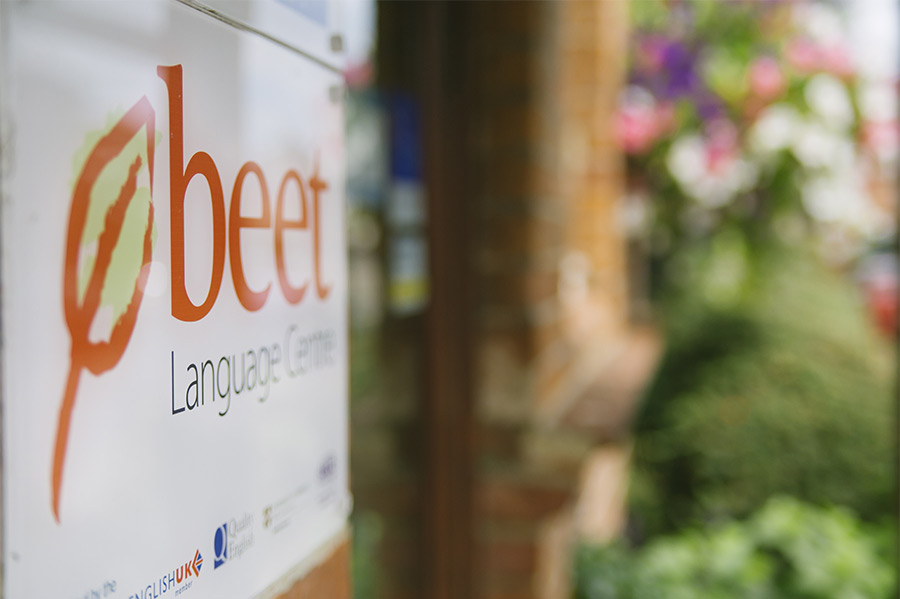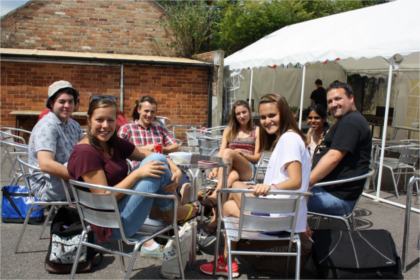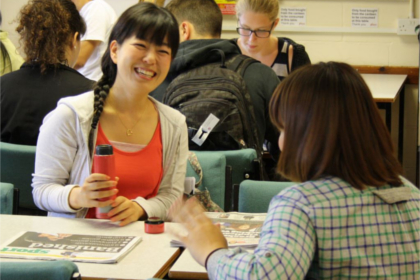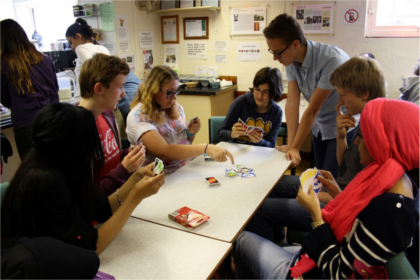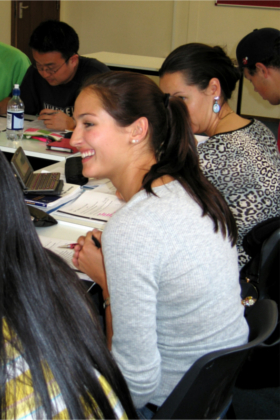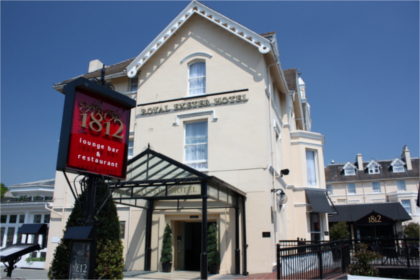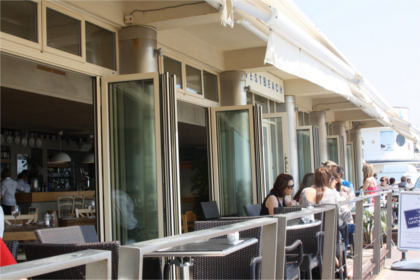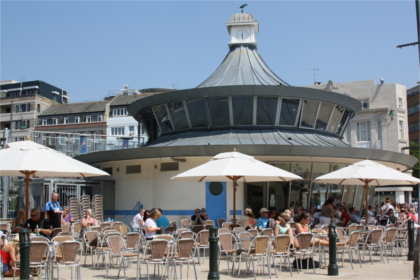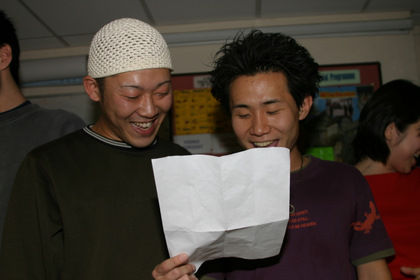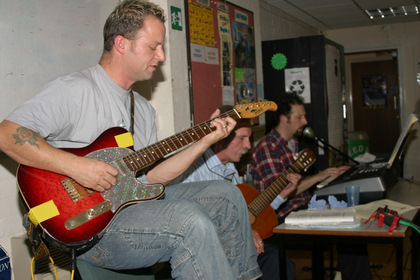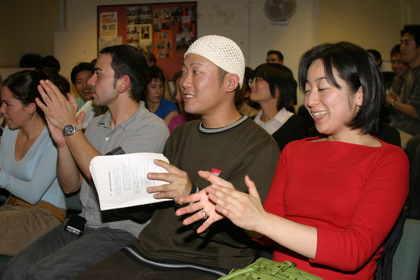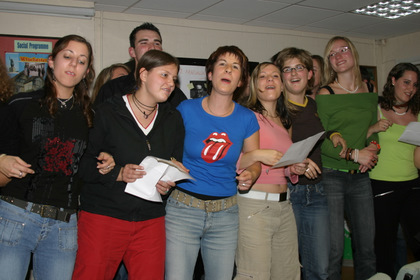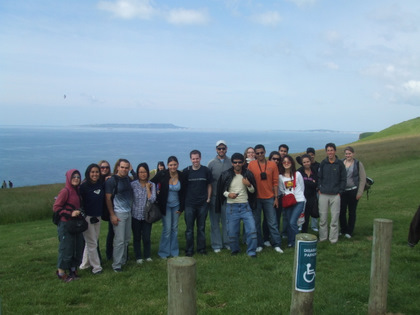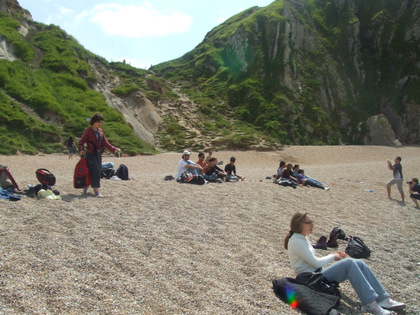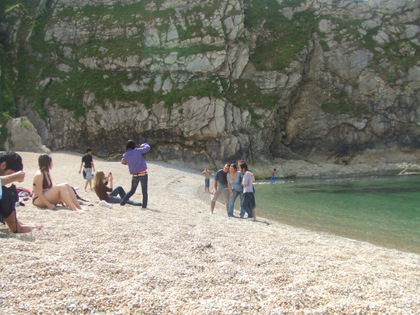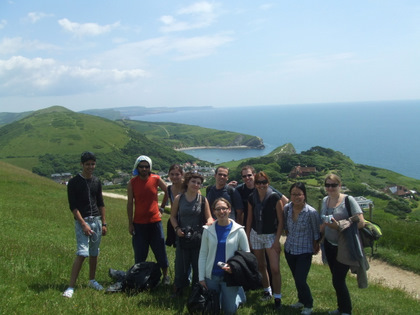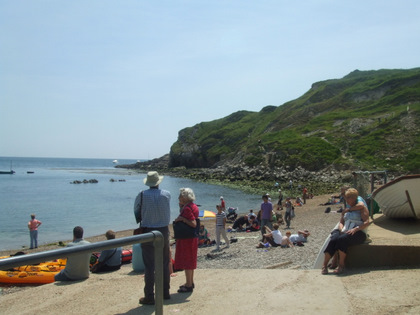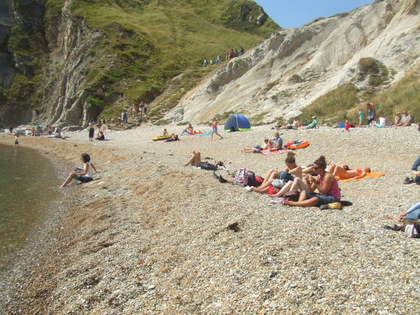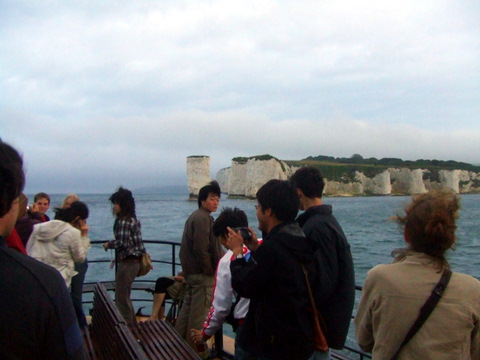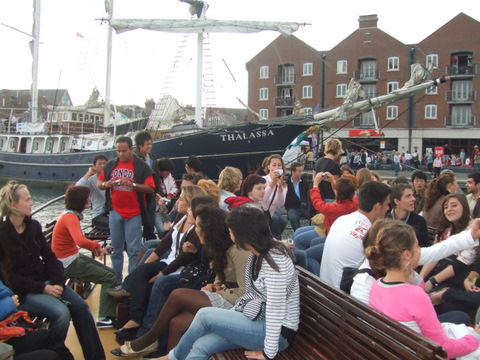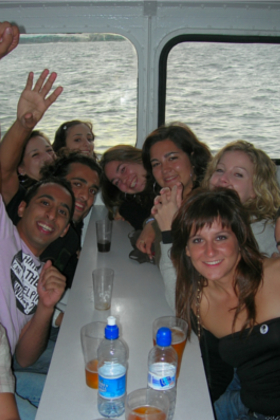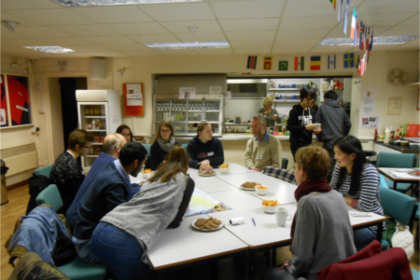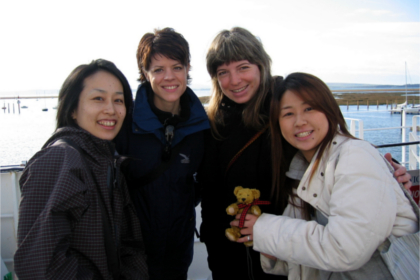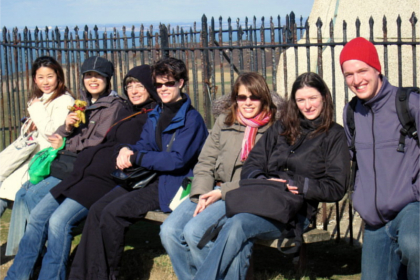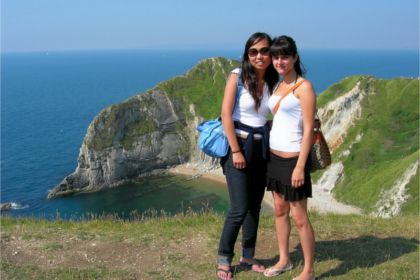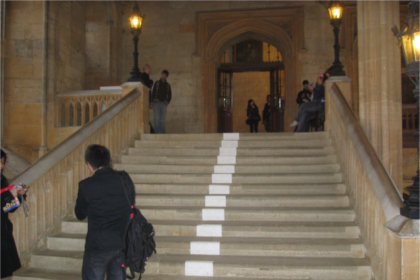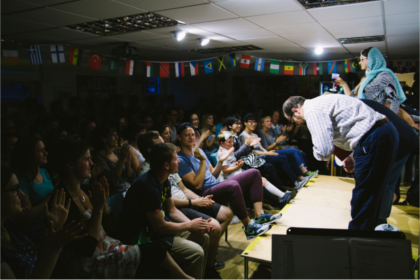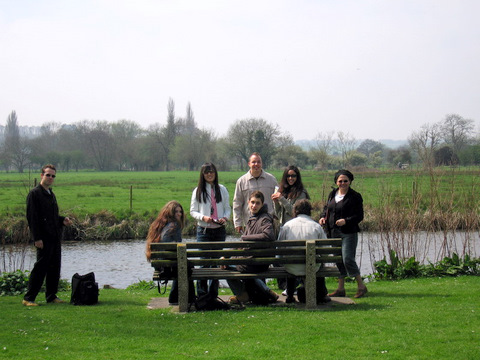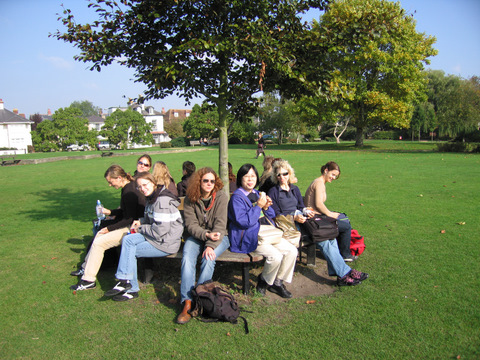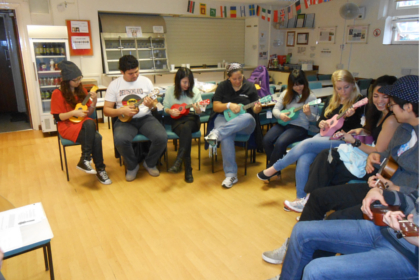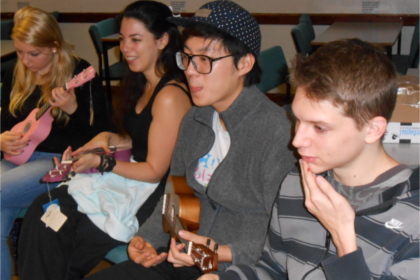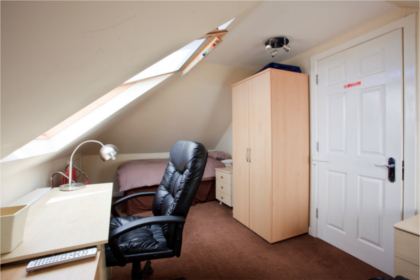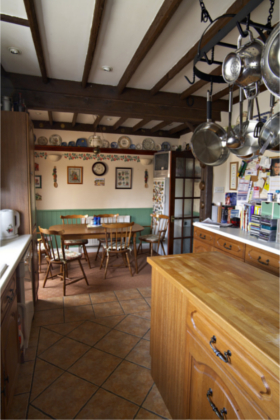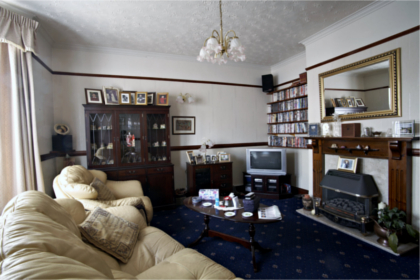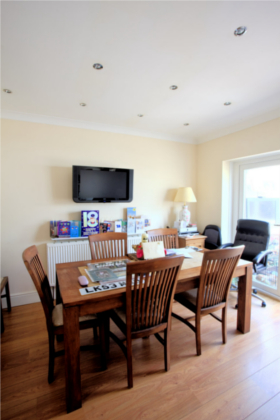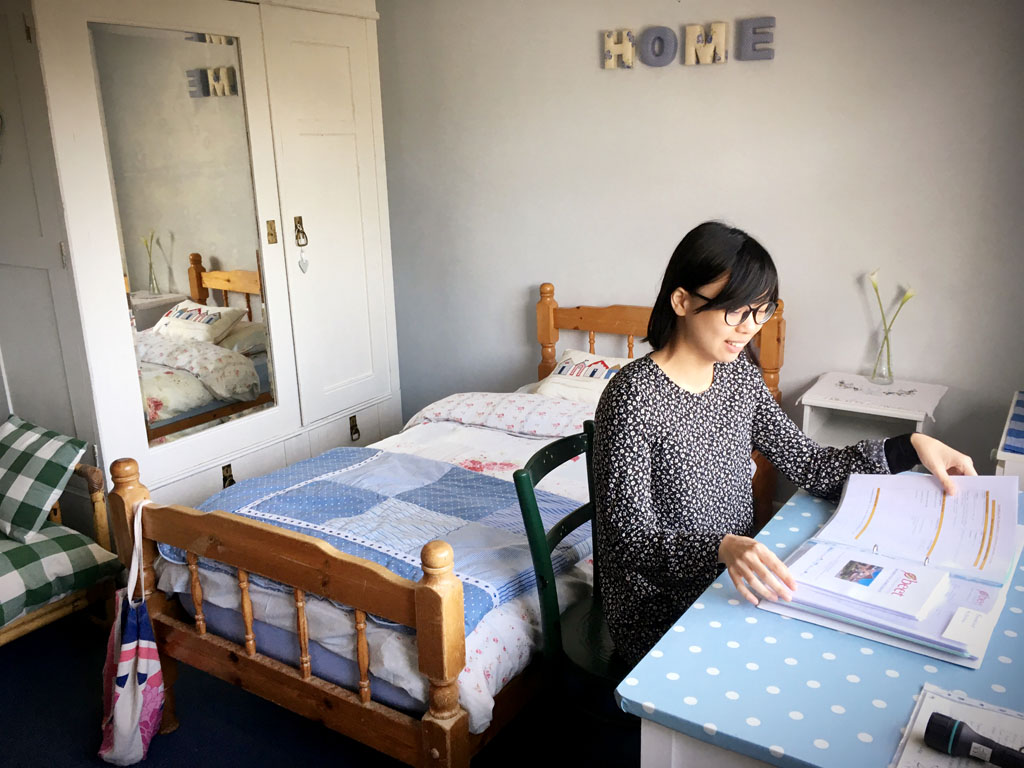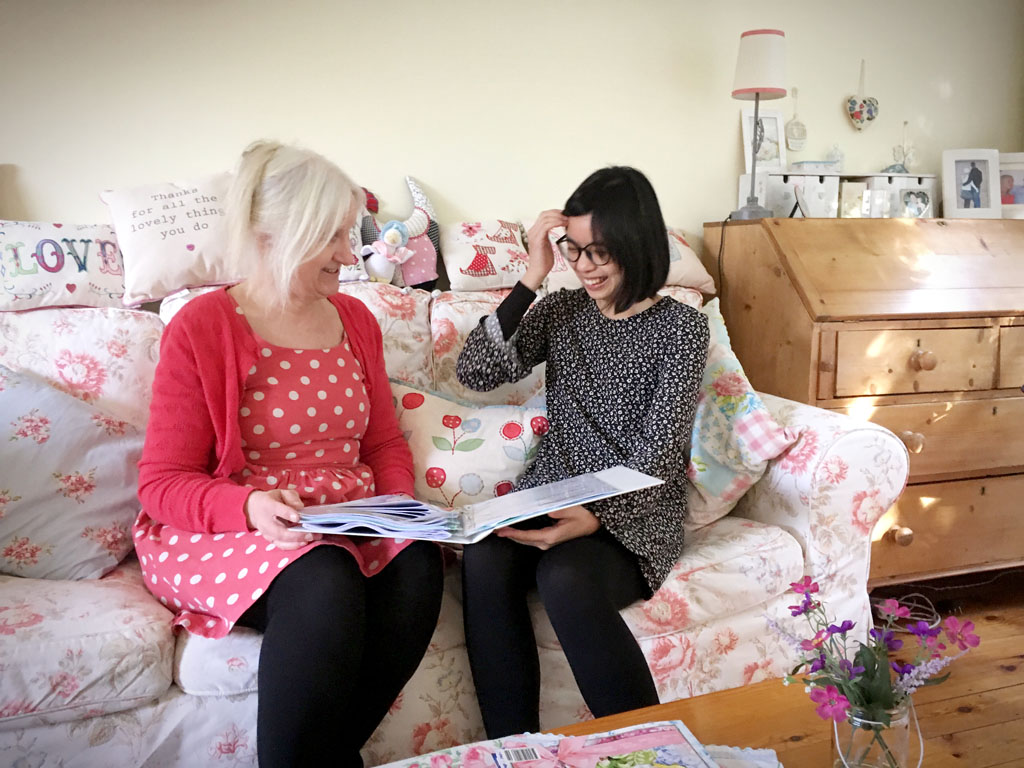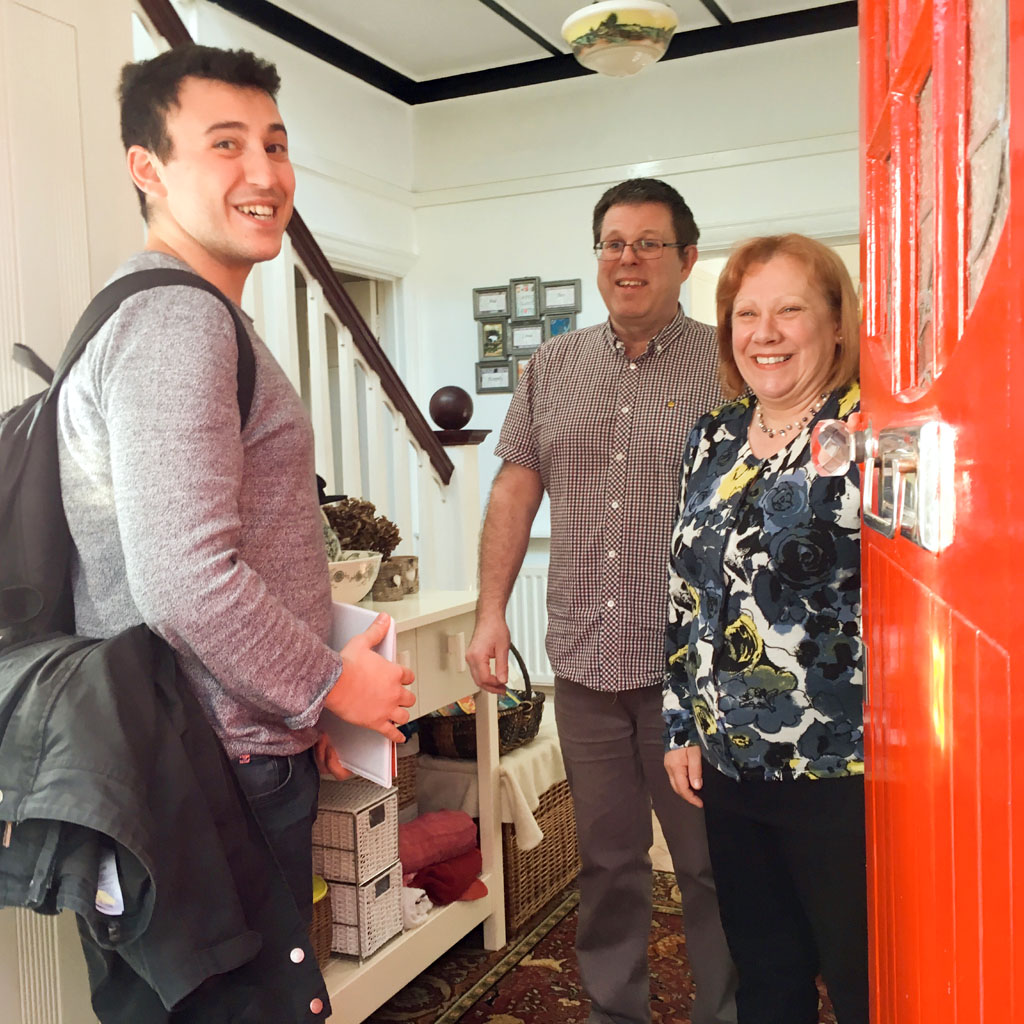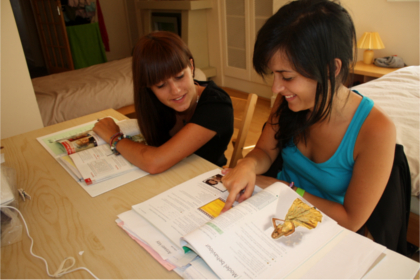Safeguarding Policy
Policy Statement
BEET Language Centre believes that it is unacceptable for any student to experience abuse of any kind. In particular, we recognise our responsibility to safeguard the welfare of students aged under 18 and vulnerable adults. We aim to provide a safe and supportive environment and ensure that all employees and host families working with BEET Language Centre accept and recognise these responsibilities.
The Purpose of this policy is:
- to protect students aged under 18 and vulnerable adults attending BEET Language Centre,
- to provide staff and host families with guidance on procedures they should adopt in case they think an under-18 or vulnerable adult may be at risk of harm
- to protect ourselves from suspicion of any form of abuse
The policy applies to all staff employed by BEET Language Centre, contractors, interns and all members of host families.
Safer Recruitment Policy (Staff)
We ensure that all applicants for employment by BEET Language Centre are interviewed and asked to explain why they left previous positions, explain any gaps in their CVs, and provide at least two references, at least one of them written; all such references will be followed up.
It will be made clear to applicants that the work, either paid or voluntary, involves working with young people and is exempt from the Rehabilitation of Offenders Act 1974. BEET Language Centre excludes known abusers. DBS checks will be renewed for teachers that have been away from the school for a period of 1 year or more. All permanent staff are signed up to the Update Service and a status check is carried out annually.
International DBS checks are conducted for teachers arriving from overseas, or letters of good conduct are required from the police in that country when a DBS is deemed to be impractical or of little value in identifying risk. A British DBS check will also be done for overseas teachers who have at some point been resident in the UK, however long ago.
If a DBS check for a member of staff has not cleared before the start date, or if it has not been possible to obtain a letter of good conduct or equivalent for an overseas teacher, the Centre will apply especial rigour to the scrutiny of other suitability checks. We will then conduct a risk assessment: the member of staff can start work provided there is no reasonable alternative to the appointment and the risk assessment assures the Safeguarding Officer and Principal that there is no risk to under 18s. The risk assessment considers whether:
- there is a reasonable alternative to that member of staff starting work
- the impact on service delivery of not allowing that member of staff to start work would be significant and counter to the interests of students
- they can be assigned to work spaces where they would not have unsupervised access to U18s. For instance, the member of staff can only work in public areas visible to other members of staff: teachers, for instance, will only be allocated to classrooms which are in public view
- other pre-appointment suitability checks have been unequivocally satisfactory. This means solid references will have come through from the current employer and one previous employer/college and been followed up with positive confirmation.
We ensure that all appointments are subject to a probationary period and will not be confirmed unless BEET Language Centre is confident that the applicant can be safely entrusted with young people and vulnerable adults
Staff Training
We ensure that staff are given training opportunities to ensure that they recognise the symptoms of possible abuse (physical, sexual, emotional and neglect) and how they should respond to suspicions of abuse.
We ensure that all staff are aware of, understand and apply the direction in the Code of Conduct.
We ensure that staff are aware of their obligations under the Prevent policy to be aware of any signs of an under-18 or vulnerable adult student being in danger of becoming drawn into extremism or any kind of terrorism-related activity.
We share information and act promptly and professionally to any concerns.
We ensure a suitably-trained Safeguarding Lead is always available.
Safer Recruitment (Homestay Providers)
We ensure that all adults (18 years or older) in a homestay have an enhanced DBS check. If a DBS check has not cleared, U18s will not be placed with that homestay.
We ensure that all members of Host Families aged 16 and over complete every year the form ‘Declaration Regarding Suitability to Foster Children Privately’ (Children Act 1989 Part IX).
Designated Safeguarding Leads
We have a Designated Safeguarding Lead (DSL) who is responsible for implementing the BEET Safeguarding policy and responding to child protection allegations. The Deputy DSL provides cover in the DSL’s absence.
Safeguarding Procedures
Under-18s are identified by their student ID card, with date of birth in red.
The Designated Safeguarding Lead arranges an interview on the first day of Under 18s stay. All 16- and 17-year-old students can attend (optional but strongly encouraged) a weekly Safeguarding meeting together with other 16- and 17-year-olds in the morning break every Friday with the Safeguarding Officer. Once a month each student must have a one-to-one meeting with the Designated Safeguarding Lead. Interviews cover accommodation, curfew, general health and well-being, students and school contact details, and life at Beet language Centre.
The Academic team identifies under-18s and vulnerable adults on the class register. Teachers ‘check-in’ with under-18s every week in class time or in breaks to make sure they seem happy generally, and are engaged with and keeping up with the work in class.
We ensure that there is a range of inclusive activities within the Social Programme for students of all ages. The weekly plan shows suggested activities, and indicates if any activity is not suitable for under-18s with an ‘18+’ symbol.
We always take into account under-18s with respect to the staff code of conduct, social activities and risk assessment.
We issue Under-18 Student Agreements* prior to arrival for under-18s and ensure that host families are aware of the parental consent given.
We inform homestay of the time of arrival of under-18s.
Curfew
Students under 18 must return to the homestay by 2300 Sunday to Thursday inclusive and by midnight on Friday and Saturday nights
Absenteeism
Under-18s are reported absent to the academic management team at the beginning of the first lesson and steps taken to ascertain the whereabouts and safety of the student are taken by the Accommodation and Welfare department. Calls are immediately made both to the student and the homestay family.
In cases of repeated absence of an under-18, the Safeguarding Lead or deputy holds an interview with the student to ascertain the reason for the absences and whether there are causes for concern; the outcome is recorded on the student’s file on the enrolment system and the parents informed.
Accommodation
Under-18s must stay with BEET-approved homestay providers unless a risk assessment satisfies the school that they will be adequately safeguarded in other accommodation. To meet this requirement, the alternative accommodation would typically need to meet the following requirements:
- the under-18s legal guardian would need to provide consent to all details of the arrangement
- the under-18 would need to be staying with a family member whose relationship to the under-18 can be properly evidenced
- the family member would need to produce a police check from their country of origin
- the accommodation arrangements must ensure safe transport to and from the school
- the family member would need to show how the under-18 will be properly supervised during their stay
PREVENT duties
PREVENT was introduced by the UK government as part of the Counter Terrorism and Security Act 2015. Although we are not required by law to have a full Prevent policy, BEET Language Centre seeks to protect its staff and students from being drawn into terrorist activity of any kind.
We inform all our employees and homestay families about PREVENT, which is about safeguarding our staff and students to keep them both safe and within the law. The Prevent duty is not about preventing students from having political and religious views and concerns. The government has defined extremism as ‘vocal or active opposition to fundamental British core values.’
All staff and homestay families have a duty to be aware that vulnerable adults or children may be drawn into extremism or are in danger of being radicalised. All concerns about any student being drawn into any kind of terrorism as a consequence of radicalisation, no matter how trivial, must be reported.
Social Activities
Excursions
If any of the students booked on an excursion are under 18, the Social Organiser will, if they feel there is an increased risk to those students, speak to the Principal and one of the Safeguarding Leads to assess the risk of that student joining the excursion and whether additional members of staff should be assigned.
U-18s are clearly identified on the passenger list by a member of the administration team. Phone numbers are written on the passenger list for all students participating.
Teachers double check on the coach to make sure that all under-18 students are present.
If a student marked as under 18 fails to arrive in the morning for the excursion, the teacher in charge first calls the student’s mobile or homestay number. If there is no response, the teacher-in-charge (TIC) calls the BEET emergency number. It is then the responsibility of the Designated Safeguarding Lead to follow up the student’s absence, as the coach will leave without the missing student.
Teachers should check the mobile number of all under-18 students and ensure all students have the teachers’ mobile numbers.
Under-18 students should have the option of staying with a teacher during the day.
Otherwise, all U-18s should be told to stay in a group with friends during free time after the walking tour.
U-18s are instructed to remain within a central area. The TIC will make it clear which areas they are and are not allowed to go to.
U-18s are told to text or call the TIC at 3pm; the teacher checks that everything is OK and reminds the student of the coach departure time. If the student does not contact the TIC, the teacher calls the student. If there is no reply, the teacher calls the number of other students within that group.
Every individual in a group containing an under 18 will be told that if an under 18 becomes separated from that group, it is the responsibility of everyone in the group (including the person who has become separated) to contact the TIC immediately.
Teachers should stay in a central location and be available to help if necessary.
At the designated meeting time teachers should check the list to ensure that all under 18 students have returned.
Should anyone under 18 fail to return on time, the teacher should try to contact the missing student(s). The coach should wait a maximum of 15 minutes and then depart. One teacher (even if s/he is the only teacher on the excursion) will remain at the place from where the coach left, and ring the BEET emergency line. The teacher will also continue to attempt to contact the student, and inform the local police.
Supervision ratios (staff to U-18 students)
These are of specific relevance to students aged 16-17 years. The school’s policy is to determine the degree of supervision required on the basis of a risk assessment for the activity, but to assign at least one teacher for every 20 students aged 16-17 years.
Activities which may involve more than 20 students aged 16-17 yrs are:
Group excursions: to destinations such as Bath, the New Forest and London. These groups are accompanied by at least one group leader (from the country of origin) plus one BEET guide, maintaining a maximum ratio of 1-20.
Non-group excursions: these have low numbers of students aged 16-17, typically 0-5. The school assigns 1 teacher for up to 35 students (of all ages), 2 teachers for 36-49 students (unusual), and 3 teachers for 50-75 students (very rare). If there are students on the excursion aged 16-17, the Social Organiser makes an assessment of the risk and assigns more staff as required. Two teachers will be assigned for excursions with more than one under-18 to ensure there is always one teacher able to remain at the location if an under-18 goes missing, and one to return with other under-18s on the coach.
Evening activities: The number of members of staff present at these activities varies:
Quizzes, Lectures, Club Night: 1
Music Nights: 1-3
Sing-songs: 2-5
Revues: 6+
Given the low numbers of students aged 16-17 years at BEET, it is most unlikely that more than 20 would attend an evening activity unless they were here as part of the group and the group had decided to go to the event. In such cases, the group leaders attend the event with the students, which means at least two responsible adults are present. If we had a group of over 40 students aged 16-17, who all intended to come to a lecture or similar event, we would have a second teacher onsite, making three responsible adults in all.
It is possible, although extremely unlikely, that more than 20 students aged 16-17 could attend an evening activity without a group leader from their country. This could happen in the height of the summer. For such activities, where student numbers are high, two teachers are assigned, ensuring the supervision ratios are maintained.
Events such as lectures, music nights and quizzes, at which only one teacher may be present, are low risk events, as the students are seated in view of the teacher at all times. Were any activity to attract 20 or more students aged 16-17 with only one member of staff present and no group leader, that member of staff would make an assessment of the risk. If it were judged necessary, the member of staff would contact the Social Organiser or senior management team, one of whom would come to the school to help supervise, or designate another member of staff to attend.
Reviewed May 2021 – DC


